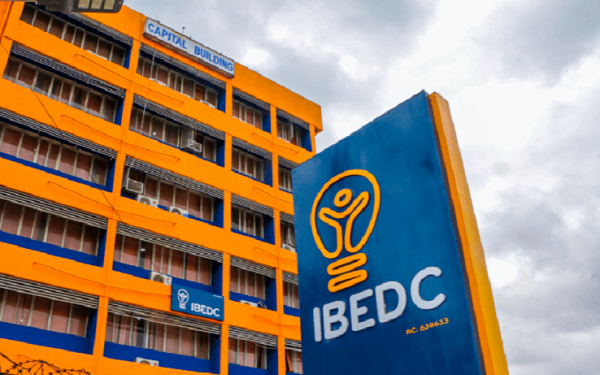In Ota, Ogun State, residents recently staged a protest at the main office of the Ibadan Electricity Distribution Company (IBEDC) to demand a reversal of their electricity tariff classification from Band A to Band B. The decision to classify households in the Oju-Ore and Ilogbo area into Band A has sparked outrage among the local populace, who argue that this new tariff structure disproportionately affects low-income families. The protesters, organized by the Balance Measure Impact Initiative, gathered with placards expressing their discontent, calling for the immediate rectification of the situation as many residents struggle to cope with exorbitant electricity bills.
Lukman Odewole, a resident and spokesperson for the protest, articulated the plight of the community by citing the shockingly high estimated bills being issued by the IBEDC. Reports indicate that some residents have received estimated bills as high as N94,000 and N95,000, which are unsustainable for the predominantly retiree demographic of the area. This alarming situation has raised concerns regarding the fairness of including residential households in Band A, which ostensibly aligns them with large corporations such as Coca-Cola and C-Way, undermining the financial realities of average citizens.
Mr. Francis Adeoti, another coordinator for the protest, echoed the sentiment of the community, demanding that the IBEDC reconsider its tariff classification. The protesters argue that the inclusion of ordinary households in the same billing category as major corporations is unjust and calls into question the methodological approach to electricity billing in their locality. Many residents feel that their economic conditions do not align with the service level associated with Band A, further exacerbating their grievances.
In response to the protesters’ concerns, Mr. Yemi Eluwole, the Business Branch Manager at IBEDC’s Ota Hub, clarified that the transition to Band A is not solely an IBEDC decision; it is influenced by broader directives from stakeholders such as the Federal Government and the Nigerian Electricity Regulatory Commission (NERC). Eluwole reassured the residents that it was not the company’s intent to burden them with higher tariffs and that the challenges experienced were reflective of a national trend affecting electricity distribution across the country.
Eluwole explained that the classification into Band A is a part of an effort to ensure a more stable electricity supply in light of significant investments made by the government to improve infrastructure. The recent tariffs implemented by the NERC in April raised the cost of electricity for Band A customers to N206.80 per kilowatt-hour, a notable increase from the previous rate of N68 per kilowatt-hour. While Band A customers receive the benefit of a minimum of 20 hours of electricity supply daily, households in Bands B, C, D, and E have seen their tariffs remain unchanged, creating disparities in how different classes of consumers are treated.
In the wake of these tensions, the residents of Ota continue to advocate for a fair resolution to their grievances. They remain steadfast in their demands for a reclassification to Band B, which would ease the financial burden on households struggling to adapt to the new tariff rates. The protests reflect broader frustrations over how pricing structures can disproportionately impact economically vulnerable populations. As the situation unfolds, there is hope among the residents that continued dialogue with IBEDC may lead to a more equitable distribution of electricity costs and improved service delivery that aligns better with their economic realities.














